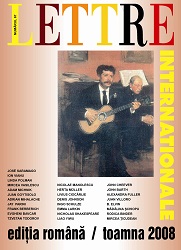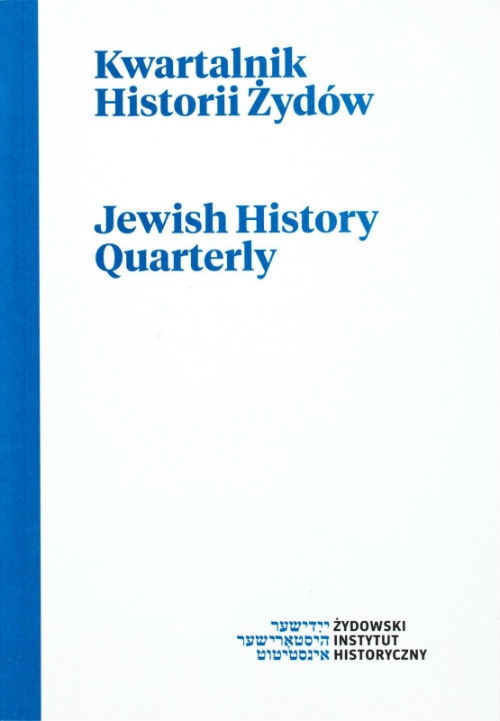
We kindly inform you that, as long as the subject affiliation of our 300.000+ articles is in progress, you might get unsufficient or no results on your third level or second level search. In this case, please broaden your search criteria.


The American journalist and political scientist describes the terror exerted for decades by the military junta and the recent rebellions of the population. These rebellions have been put down with an incredible violence, muffling any voice that would have dared to protest.
More...

A fragment from Saramago’s Memoirs in which he recalls moments, events, circumstances that marked his childhood and adolescence
More...
Tasmania, considered one of the last places on earth where pollution has not yet destroyed nature, faces now the same danger as the rest of the world – pollution and climate change. What can be done to save the Earth from this human-caused destruction?
More...
Following a 20th century dominated by the confrontation between totalitarianism, on the one side, and the liberal democracies on the other side, the present epoch is marked by other problems. There are some causes for worry and some trouble spots: from a technological point of view, it is easier for groups and individuals to get hold of mass destruction weapons; the unbridled lust of a group of countries that seek to take advantage of mondialization, consumption and entertainment industry; the resentments of the countries that consider themselves humiliated and marginalized; or the apprehension of the West of the two groups of countries mentioned above.
More...
The author, a writer and a journalist, draws a complex picture of Cuba and its people, against the economic, social and political background of a country shunned by the technological progress.
More...


The well-known psychiatrist who protested against the totalitarian system, revealing the medical practices meant to suppress the protesters against Ceaușescu’s regime, narrates several episodes from his struggle with the Romanian secret police. The author outlines thus the profile of an epoch of repression and its people, with their cowardice, courage and shrewdness.
More...
The Dutch journalist shows how and why international organizations whose aim is humanitarian actions in the regions worst affected by war or by various crises, and that have at their disposal funds equivalent to the world’s fifth economic power, have turned into very profitable business. Philanthropy has become a rich source of profit for heads, employees and companies alike involved in this activity.
More...


Prague, under the increasing wave of international tourism, tries to cope with this invasion.
More...

In a speech held during a UNESCO conference, the author pleads against an educative system tending exclusively towards a professional career, and the obsessively rendering knowledge into a profitable asset. Research as such remains a luxury that cannot count on the support of scholarships. The author’s models are Cervantes and R.S. Ferlosio.
More...
The portrait of Lech Wałesa, as it is sketched in the book of two Polish historians who accuse him of having collaborated with the secret services, is drastically contested by Adam Michnik. The Polish historian and journalist does not ignore the famous leader’s character shortcomings and his errors, but underlines the dangers of organized suspicion and of blind sentencing, of the lack of any restraint in the moralizing discourse.
More...
The Radom branch of Polska Spółka Obuwia „Bata” S.A. footwear manufacturer of Kraków came on stream several months before the outbreak of World War II. During the Nazi occupation it was significantly expanded, becoming the largest footwear factory in the General Gouvernement. In early 1942, it employed 2400 people, of whom some 30% were Jewish forced labourers, marched to the plant from the Radom ghetto. The Jews were chiefly craftsmen (tailors, shoemakers, leather stitchers, furriers), who received a small amount of cash and a bowl of soup for their work. In August 1942, when the Nazis liquidated the ghetto in Radom, the majority of Jewish labourers were taken to Treblinka death camp. At that time a small commando for formed out of the Jews left in Radom, who were marched daily to the factory, where they got no pay whatsoever. However, the number of members of the commando was steadily shrinking, and the last Jewish labourers appeared here in June 1943.
More...
The text deals with the way collective perception patterns work in connection with the memory and moral history of societies. The author provides examples of persons excluded from various communities after they exposed the crimes committed in those communities. In each instance, the reason for the exclusion is the inability of the community to accept their communal guilt. A further part of the text deals with political history pursued in Poland in the years 2005-07, characterized, among other things, by a search for external culprits who could be blamed for all of Poland’s failures. To support her hypothesis, the author refers to field studies showing that to this day many Poles cherish the conviction that the Jews actually rule Poland.
More...
The article is an attempt to describe over 400 announcements preserved as copies in a secret archive of the ghetto in Białystok. The text presents the circumstances in which the notices were issued and analyses such formal elements of them as heading, number or signature, from which it is possible to learn about daily life and occurrences in Białystok ghetto, as well as the issuing authority or the group to whom the announcements were addressed. The author quotes a classification of documents proposed by Szymon Datner, which reflects important aspects of ghetto life, such as forced labour or education. The final part of the article reviews announcements on the back of which there are hand-written notes, presumably made by Mordechaj Tenenbaum.
More...